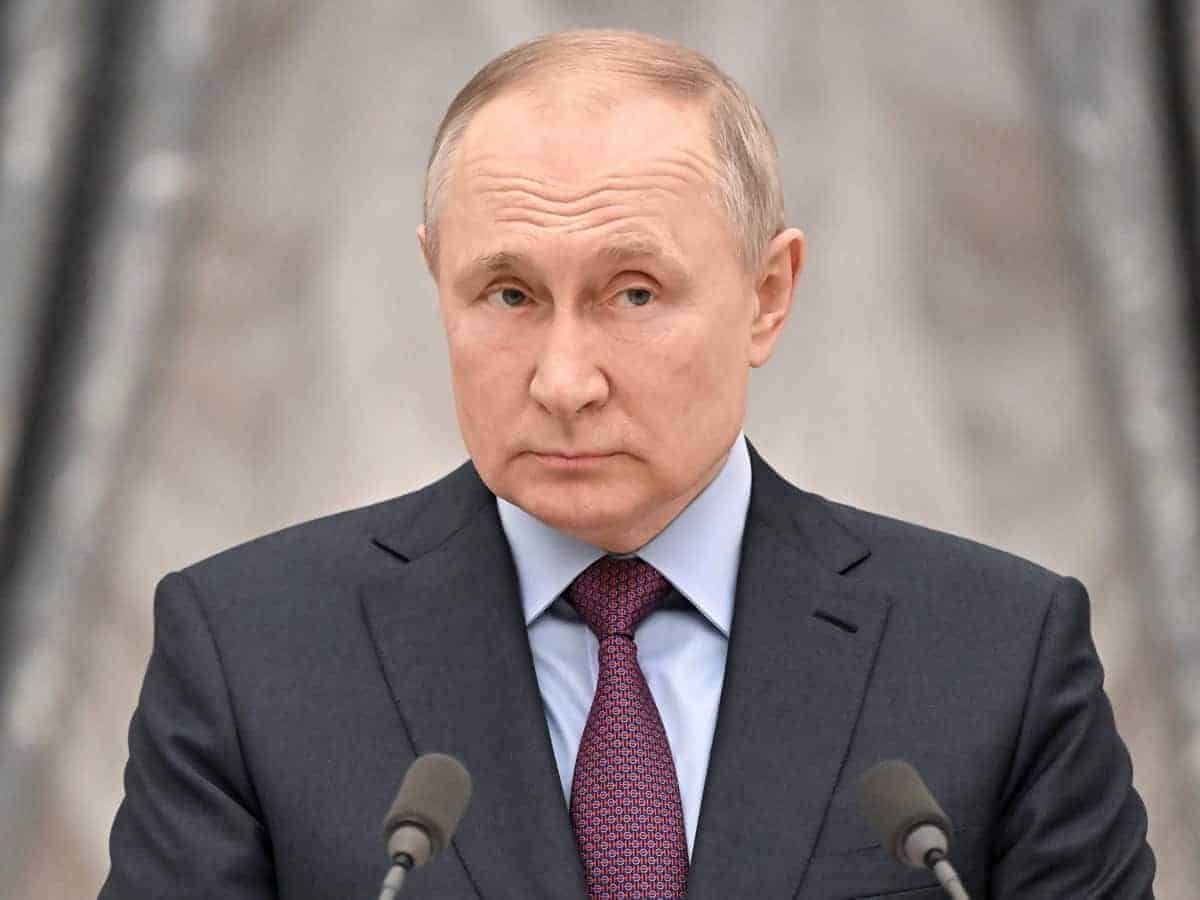
Moscow: Russian President Vladimir Putin on Wednesday, December 6, arrived in the United Arab Emirates (UAE) capital Abu Dhabi as part of a Gulf trip that also includes Saudi Arabia.
Putin plans to meet with UAE President Sheikh Mohammed Bin Zayed Al Nahyan in Abu Dhabi before his first face-to-face meeting with Crown Prince Mohammed bin Salman since October 2019, Russian news agency TASS reported.
It quoted the Kremlin as saying in a press statement, “During the negotiations with UAE President Mohammed bin Zayed Al Nahyan, [Putin is] expected to review the state and perspectives of further development of the multifaceted Russian-Emirati cooperation, as well as the current international agenda with an emphasis with the situation in the Middle East (amid the ongoing Israel-Hamas conflict).”
In Riyadh, President Putin and Mohammed bin Salman will discuss “issues of bilateral cooperation in trade, economy and investments, as well as various aspects of cooperation in multilateral formats.” The sides also plan to have “an exchange of opinion on regional and international agenda.”
Previously, Kremlin Spokesman Dmitry Peskov said oil would also be on the agenda of these visits. He pointed out that while such discussions are being carried out within the OPEC+ format, the national leaders will discuss this topic as well.
The spokesman also noted that Putin’s visit to both countries will happen “effectively within a 24-hour timespan.”
Saudi Arabia, the UAE and Russia are all members of OPEC+, the alliance between the Organization of Petroleum Exporting Countries and other major oil producers, which last week agreed to extend and deepen its production cuts.
Meanwhile, Israeli Prime Minister Benjamin Netanyahu on Tuesday rejected the idea that an international force could be responsible for security in the Gaza Strip after the war, saying that the Israel Defence Forces (IDF) should retain control of the disarmament of Gaza, CNN reported on Wednesday.
According to CNN, this is not the first time Netanyahu has called for post-war Israeli military control in Gaza.
“On the day after, Gaza must be disarmed. And in order for Gaza to be disarmed, there’s only one force that can ensure that — and this force is the IDF,” Netanyahu said on Tuesday during a news conference. “No international force can be responsible for that,” he said, adding, “We saw what happened to other places where international forces were brought for disarmament purposes.”
In November, Netanyahu told CNN that Israel’s security role in a post-war Gaza would be an “over-riding, over-reaching military envelope,” but did not explain what that meant.Meanwhile, the Israeli military encircled the city of Khan Younis in southern Gaza, the Israel Defense Forces’ chief of the general staff said, CNN reported.
“Sixty days after the war began, our forces are now encircling the Khan Yunis area in the southern Gaza Strip,” IDF chief Lt. Gen. Herzi Halevi said on Tuesday, adding, “Simultaneously, we continue to secure our accomplishments in the northern Gaza Strip.”
